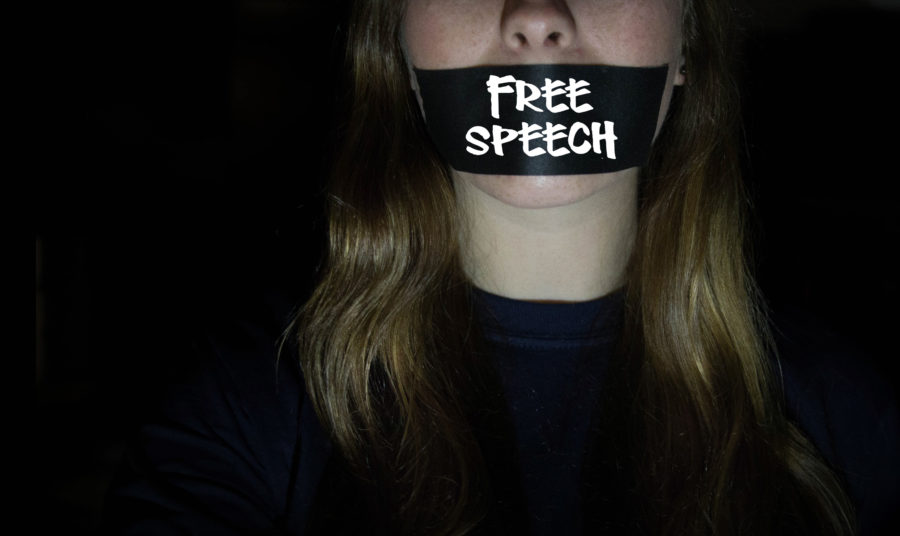‘Free speech basics’ fallacious
Day responds to Sept. 17 NI editoral titled “Back to the basics of free speech.” The column was authored by Andrew Heppeard.
Sep 26, 2016
I know — yet another op-ed about free speech. It’s gotten just a little much already. In my defense, though, I’m the NI’s resident straight, white, male, conservative columnist, how long could you realistically expect me to avoid the subject? All kidding aside, Andrew Heppeard’s factually weak and barely coherent piece last week simply cannot pass us by in an embarrassed silence. Thus, here is the necessary rebuttal.
To give credit where due, Heppeard’s initial elaboration on free speech and slander and libel law is accurate (though rather limited), and his use of a quadrant scheme (with axes of opinion and actuality) is quite helpful. On equating slurs (“and other hate speech,” whatever that means) with slander and libel, however, Heppeard is simply wrong, and his counterargument about corporations and defamation suits is the best place to reveal why he is.
Corporations do not and cannot file suit against people who make false negative claims about, say, the inherent greed and corruption of Wall Street and the corporate world in general (or even just the markets or industries with which a given corporation is involved). If they could, I dare say some of my fellow columnists could make great targets for such lawsuits.
However, corporations can file, and have filed, suit against ‘specific individuals’ who have made ‘specific false negative claims’ about ‘the specific corporation filing the suit,’ winning them (when they do) on the very grounds that Heppeard notes regarding wrongful injury of their business (and their employees) from said defamation. That is the way defamation law has almost always been written and enforced in the U.S. (the sedition acts Heppeard mentioned notwithstanding).
This is because we as Americans have collectively found forbidding character assassination to be the only stable limitation (if you can even call it that) on the freedom of speech that survives and works overtime without necessarily eating away at free speech itself.
My limited word count forbids me from elaborating on the (what should be self-evident) horrors that can and will arise when a citizen can bring a defamation suit against someone else for making false negative claims, not about that specific citizen, but about a broad grouping of people (characterized by traits such as race or gender) to whom that citizen happens to belong.
It is this fact of law, not the lack of well-funded “formal organization,” that prevents women and racial minorities from successfully filing such suits. Nor should it be any different.
In addition, Heppeard misleads (and even somewhat insults) when he implicitly conflates “negative impact on a person’s life or livelihood” (in cases of experiencing discrimination) with being “unable to save face without conceding to a falsehood.”
This is rather surprising, given that the personal success stories of the first two waves of American feminism and the civil rights movement in the 1960s (and beyond) are the women and racial minorities who achieved greatness in their aspirations precisely by refusing to concede to assumed falsehoods about themselves.
Indeed, for these heroes, much of their success came precisely from their robust, sustained defiance of such falsehoods in their individual contexts. I know (even personally) women and racial minorities who have fought against additional obstacles placed against them purely on the basis of their gender or race. I don’t know of a single person who would say they got to where they were by conceding the falsehoods about the inferiority of their gender or race.
At any rate, the successful achievement of greater gender and racial equality in this country is not going to come from any newfound ability to sue any random Joe who says something offensive about women or racial minorities. It’s time to take a break from resorting to the courts and guns to solve our country’s cultural problems for us, and to instead look to our own demons.
P.S. Adequately addressing Heppeard’s misinformation regarding the Foundation for Individual Rights in Education (FIRE) would likely take another column. To conclude this one, then, I’ll simply say that FIRE founders Alan Charles Kors (a libertarian) and Harvey A. Silverglate (a civil-liberties attorney), along with current president Greg Lukianoff (a pro-choice, liberal atheist) would all take great umbrage with Heppeard’s characterization of their organization as a “conservative group.”

















